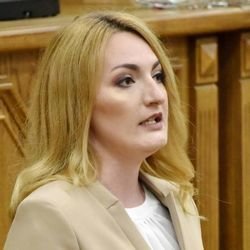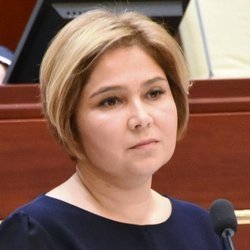‘The children are embarrassed to attend online classes — the drunken dad is walking in the background’
Who wears the trousers, or what’s happening behind Russians’ closed doors during the quarantine?
It didn’t disappear with the decriminalisation of the article of domestic violence, while in extreme conditions when most Russians are staying home and alcohol sales have gone up, the situation has just aggravated. In the middle of April female deputies of the State Duma wrote a letter to Vice Premier Tatiana Golikova asking her to pay attention to the problems and take additional measures. Active human rights advocates, directors of nine NPOs, had talked about the same in their message. As Realnoe Vremya found out, the situation in Tatarstan isn’t reflected in official statistics — we can’t verify a growth in such crimes or a storm of calls to hotlines. But as experts note, domestic violence in the republic is still a hot-button issue — it just doesn’t get to calls for help.
We will learn real numbers after quarantine is lifted
On the other hand, we see that there is little support. Moreover, law enforcement bodies, including in Tatarstan, reported on the first quarter of the year, and according to their data, there isn’t seen an upsurge of crimes. Certain types of wrongdoings increased a bit, particularly cyberfraud that showed more than an 80% growth compared to the analogous period last year. Domestic crimes, especially linked with alcohol, are also present, but, as we were told in the press services of the Ministry of Internal Affairs in the Republic of Tatarstan and the Investigative Office of the Investigative Committee in the Republic of Tatarstan, it was simply impossible single precisely domestic violence out.
UN Special Rapporteur Dubravka Šimonovic states about an outbreak of domestic violence in Europe as early as 27 March. So the number of addresses from women to the police rose by a third during 11 days. The East isn’t keeping silent either — Lebanon and Malaysia have shown twofold growth in calls to hotlines. However, even these countries can so far announce the sad statistics, not solve the problem dramatically.
Real numbers in Russia are expected to appear only after quarantine is lifted — now, when victims are under incessant attention of abusers who are being close to them, they not always can even call. However, there are some statistics: in March 2020, the all-Russian helpline for women suffering from domestic violence received 2,537 addresses. It is over 80 cases a day and almost by a third more than in February. It is noted at the same time that consultants can’t process all addresses.
Who benefits from lying or keeping silent?
The previous years, there was an unspoken signal around the world — a black dot on a woman’s palm. If a woman walking next to a man silently slightly raised her hand and had such a mark on a palm, well-informed people understood that she was violated. Sympathisers tracked the victim’s place of residence to free her by all means. It has been harder to give such a signal now — it is useless to go outside to be rescued, while rehabilitation centres have closed for quarantine.
Self-isolation became a litmus test to detect problems in a family and their true scale. As it is known, the most terrifying crimes are committed behind closed doors. Russia doesn’t have the accurate mortality rate from domestic violence, neither does it have the facts as such. At the same time, only one case of domestic violence was recognised in Russia on 26 March — a man killed his wife during self-isolation in the dacha near Moscow. They both were above 60 years, the husband killed himself after the murder.
“We don’t have a well-oiled mechanism to help victims of domestic violence”
Many of those victims who turned to representatives of law asking for help as a result of domestic violence in Russia, faced a harsh and often heard phrase: “No body — no case”. To put it simply, call when he kills you. Where to seek help?
Firstly, the Russian president’s ombudsman on human rights in the Republic of Tatarstan has a hotline for women who suffered from domestic violence. However, we weren’t confirmed a rise in the number of addresses during self-isolation.

Secondly, Shimina noted that the republic had refuges or rehabilitation centres financed by charity funds where women and children are provided with temporary shelter, however, there is not a systemic programme on what a woman should do in this situation. The tips like “give in and tolerate”, “reeducate with time”, “live separately for some time” don’t work.
We should remember that victims of violence are psychologically undermined individuals. A woman can’t protect herself or her child with time. And a tyrant who feels his impunity becomes crueller with time. Let’s add fines here. The administrative offence is registered after a claim, a fine is a punishment for it. It is paid from the family budget. Who is punished in this situation? A child who has been divested of a slice of bread.
Children are embarrassed to study online because of drunken dad
“The Association of Mothers of the Republic of Tatarstan is a non-profit organisation that grew from a usual community in a social network. Our activists share experience, we have a free consultation from psychologists, jurists, general meetings with specialists. It resolves local issues. For instance, a woman has recently turned to me. A family with two children lived mainly on the husband’s incomes — he was on piece rates.
The woman herself earns only 12,000 rubles, she has two children. Now the husband has lost the income. Everybody is at home in quarantine. Children have to study online, but they are embarrassed to attend online classes — the drunken dad in boxers is constantly walking the rooms with a bottle in his hands in the background. He is making noise, shouting, the children are ashamed to show teachers such details of family life. We help as much as we could, we delivered a food basket to them. People don’t turn to us to report on domestic violence. Moreover, as our recent survey we did on the Inter during self-isolation showed, there isn’t any outbreak of violence in the family,” says Nina Shimina.
No culture of seeing psychologists
The Russian president’s ombudswoman on children rights in the Republic of Tatarstan Guzel Udachina also helps families with children in a complicated situation in Tatarstan. According to her, an upsurge in addresses hasn’t been seen in the last month. 2,166 addresses have been received since the beginning of the year — in written form, by a phone call or appointment in person. There have been 518 addresses in the last month, during the quarantine. The apparatus of the ombudsman has issued 30 signal maps — it is the documents that representatives of social services use and go to a troubled family’s place of residence to prove or deny the SOS call. However, the cases of domestic violence weren’t confirmed after the inspections.

However, Guzel Udachina agrees that domestic violence against women and children both in the republic and in Russia in general is a hot-button issue. However, due to traditions, education, the mentality, it is suppressed, moreover, by the victims themselves.
“We don’t have a culture of visiting psychologists and psychotherapists, it isn’t accepted. Though, as practice shows, the addresses we receive require precisely psychological help than material, though this is important too. And we work closely with both psychologists and public activists, particularly with those who set up rehabilitation houses for women with children who suffered cruel treatment from the husband or partner, even though our key activity is the legal protection of a child’s rights. But look, in the West, a child is automatically recognised a victim of violence if he simply saw his father or stepfather beating the mother, while he didn’t even touch the child. Unfortunately, we don’t have it.”
When it is safer without family
Udachina especially noted that removal of the child from the family was a very rare measure, but at times they simply have to take it to rescue the child. As an example, she remembered a case in Tatarstan’s Zelenodolsk District, which was last December. A six-year-old boy was admitted to the hospital, there were found numerous marks of beatings, including old ones, scars and bruises that healed a long time ago, a lot of ruptures on his body. It was seen the child had been abused for a long time. Medics talked with him and found out that all was done by his stepfather. The mother, of course, saw everything, but it seems that she was beaten so much herself that couldn’t defend her children. In the end, the child and his three siblings were removed from the family. It is a classic example of domestic violence and at the same time a borderline, extreme case.
The body has hosted Psychological Help Days for the second year. They are announced in advance, women can get all necessary consultations free, by appointment.